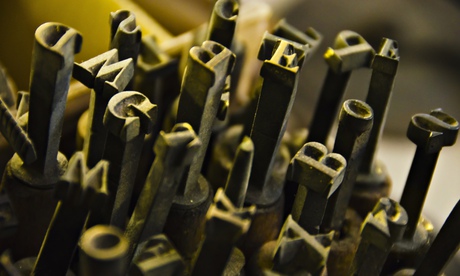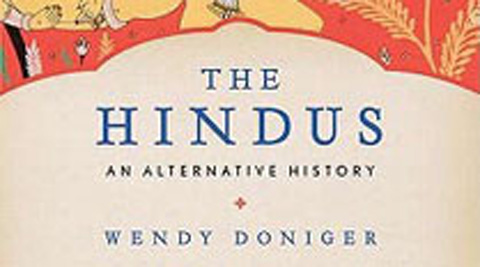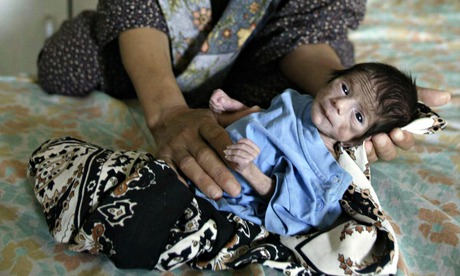The principal threat to expression comes not from state regulation but from censorship by editors and proprietors

‘A political monoculture afflicts much of the press. Reports that might reveal a different side of the story remain unwritten.' Photograph: Tetra Images/Corbis
Three hundred years of press freedom are at risk, the newspapers cry. The government's proposed press regulator, they warn, threatens their independence. They have a respectable case, when you can extract it from the festoons of sticky humbug. Because of the shocking failures, so far, of self-regulation, I'm marginally in favour of the state solution. But I can also see the dangers.
Those who cry loudest against the regulator, however, recognise only one kind of freedom. In countries such as ours, the principal threat to freedom of expression comes not from government but from within the media. Censorship, in most cases, happens in the newsroom.
No newspaper has been more outspoken about what it calls "a chill over press freedom" than the Daily Mail. Though I agree with almost nothing it says, I would defend its freedom from state censorship as fiercely as I would defend the Guardian's. But, to judge by what it publishes, within the paper there is no freedom at all. There is just one line – echoed throughout its pages – on Europe, social security, state spending, tax, regulation, immigration, sentencing, trade unions and workers' rights. Labour is always too far to the left, even when it stands for nothing at all. Witness the self-defeating headline on Monday: "Red Ed 'won't unveil any policies in case they scare off voters'." Ed is red even when he's grey.
This suggests either that any article offering dissenting views is purged with totalitarian rigour, or general secretary Paul Dacre's terrified minions, knowing what is expected of them, never make such mistakes in the first place.
A similar political monoculture afflicts much of the press. Reports that might reveal a different side of the story remain unwritten. A free market in news is not the same as a free press, unless freedom is defined so narrowly that it refers only to the power of government, rather than to the power of money.
The monomania of the proprietors – or the editors they appoint in their own image – is compounded by an insidious, incestuous culture. The hacking trial revealed a world, as Suzanne Moore notes, of "sleepovers, dinners, flowers and presents ... in which genuine friendship is replaced by nightmare networking". A world in which one prime minister becomes godfather to a proprietor's child and another borrows an editor's horse, and an industry that is supposed to hold power to account brokers a seamless marriage between loot and boot.
On Mount Olympus, the gods pronounce upon issues that afflict only mortals: columnists with private-health plans support the savaging of the NHS; editors who educate their children privately heap praise upon Michael Gove, knowing that their progeny won't suffer his assault on state schools.
It doesn't matter, the defenders of these papers say: there are plenty of outlets, so balance can be found across the spectrum. But the great majority of papers, local as well as national, are owned by exceedingly rich people or their companies, and reflect their views. The owners, in the words of Max Hastings, once editor of the Daily Telegraph, are members of "the rich men's trade union", who "feel an instinctive sympathy for fellow multimillionaires". The field as a whole is unbalanced.
So pervasive are these voices that they seem to dominate even outlets they do not own. As Robert Peston, the BBC's economics editor, said last month, BBC News "is completely obsessed by the agenda set by newspapers ... if we think the Mail and Telegraph will lead with this, we should. It's part of the culture."
An analysis by researchers at Cardiff University found a deep and growing bias in the BBC in favour of bosses and against trade unions: five to one on the 6 o'clock news in 2007; 19 to one in 2012. Coverage of the banking crisis – caused by bankers – was overwhelmingly dominated, another study shows, by interviews with, er, bankers. As a result there was little serious challenge to their demand for bailouts and their resistance to regulation. Mike Berry, who conducted the research, says the BBC "tends to reproduce a Conservative, Eurosceptic, pro-business version of the world".
Last week, a brilliant and popular columnist for the Times, Simon Barnes, was sacked after 32 years. He was told that the paper could no longer afford his wages. But he wondered whether it might have something to do with the fierce campaign he's been waging against the owners of grouse moors, who have been wiping out the rare hen harriers that eat their quarry. It seems at first glance ridiculous: why would someone be sacked for grousing about grouse? But after experiencing the furious seigneurial affront with which a former senior editor at the Times, Magnus Linklater, responded to my enquiries about his 4,000-acre estate in Scotland and his failure to declare this interest while excoriating the RSPB for trying to protect hen harriers, I'm not so sure. This issue is of disproportionate interest to the rich men's trade union.
The two explanations might not be incompatible: if a paper owned by a crabby oligarch wanted to sack people for reasons of economy, it might look first at those engendering complaints among the owner's fellow moguls. The Times has yet to give me a comment.
Over the past few weeks, Private Eye has published several alarming claims about what it sees as censorship by the Telegraph on behalf of its advertisers. It says that extra stars have been added to film reviews, and that a story claiming HSBC had overstated its assets was spiked from on high so as not to offend the companies that pay the rent. The Telegraph told me: "We do not comment on inaccurate pieces from a satirical magazine like Private Eye."
Whatever the truth in these cases may be, it does not take journalists long to learn where the snakes lurk and the ladders begin. As the journalist Hannen Swaffer remarked long ago: "Freedom of the press ... is freedom to print such of the proprietor's prejudices as the advertisers don't object to." Yes, let's fight censorship: of the press and by the press.




